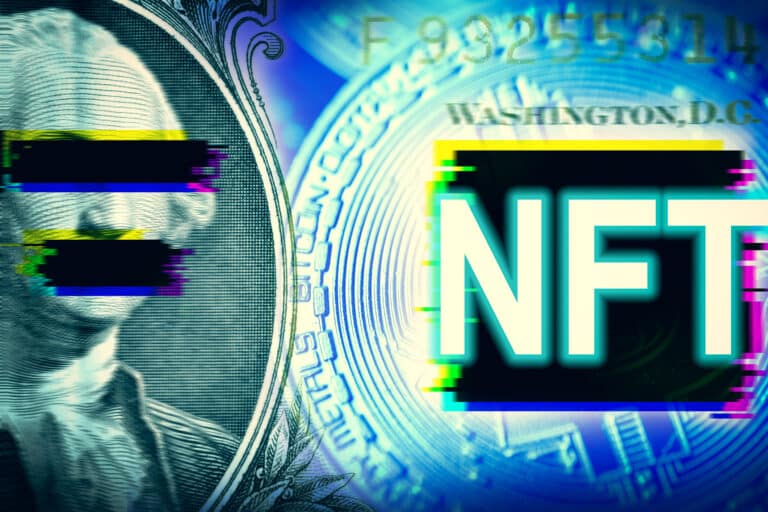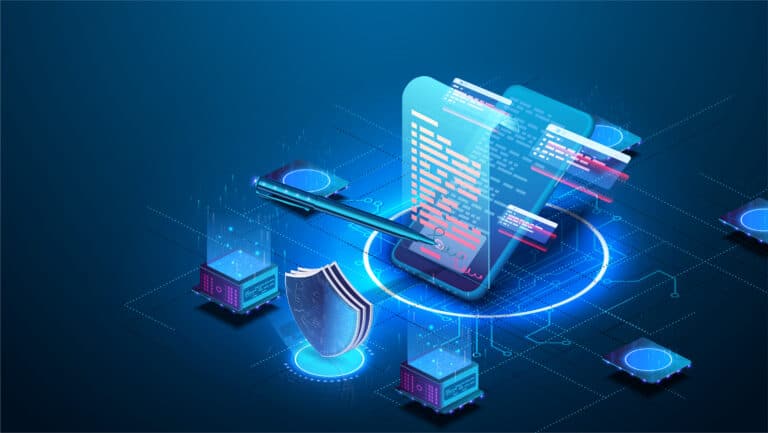a step ahead in banking
Latest news and articles on banking
Discover what’s new:

Forbearance as a strategic management tool in the lending business

Crypto regulation under CRR III: what transitional provisions and current developments are in place?

Climate risk analysis in banking
Most read articles
These articles have sparked major interest recently
Latest articles
Articles on banking trends, regulatory innovations, digital transformation and economic dynamics in the financial industry

Forbearance as a strategic management tool in the lending business
Increasing customer demand for forbearance measures presents banks with the challenge of providing solutions that are both efficient and compliant. Standardized processes are required to master this challenge.

Crypto regulation under CRR III: what transitional provisions and current developments are in place?
CRR III crypto asset regulation in Europe

Climate risk analysis in banking
Which three key questions need to be considered when implementing climate risk analysis? And what requirements should banks observe in order to successfully implement the climate risk analysis?

Selection of a network topology mapping tool: a comprehensive guide
Why should a company map its network in graphical form? What criteria should be considered when selecting the tool?

Quo vadis, Supply Chain Act? Scenario planning is more critical than ever
What requirements will apply at the national and European levels going forward? What is the expected timeline and scope of these changes? How can companies navigate supply chain due diligence and reporting amid significant planning uncertainty?

At the edge of autonomy: exploring the strategic implications of agent-initiated payments
Looking ahead, as AI agents potentially evolve from supporting consumers’ decision-making processes to acting autonomously on their behalf, payments could shift from a downstream, human-triggered step to a more embedded, automated, and agent-initiated function – depending on how technology maturity, regulation and consumer acceptance develop.

Private Banking Study Germany: enjoying a tailwind in a volatile interest rate environment
In our “Private Banking Study Germany 2025”, we have analyzed the market comprehensively and identified key trends and fields of action. The focus is on four levers that will determine future relevance and earnings power.

Compliance maturity assessment – reconciling business and compliance: from regulatory obligation to strategic success factor
Compliance is no longer just a regulatory obligation; it is a key competitive differentiator in the financial services industry.
The Markets in Crypto Assets Regulation (MiCAR) represents a significant step forward in the regulation of the European crypto market, establishing for the first time clear and consistent rules for dealing with crypto assets and related services.

Provision of custody and administration of crypto assets on behalf of clients
This article is part 1 of the BankingHub topic glossary “A brief guide to digital asset services”. The glossary entries on digital assets explain how digital asset services work and how they are regulated.

Provision of transfer services for crypto assets on behalf of clients
This article is part 2 of the BankingHub topic glossary “A brief guide to digital asset services”. The glossary entries on digital assets explain how digital asset services work and how they are regulated.

Placement of crypto assets
This article is part 3 of the BankingHub topic glossary “A brief guide to digital asset services”. The glossary entries on digital assets explain how digital asset services work and how they are regulated.

Advisory services on and portfolio management of crypto assets
This article is part 4 of the BankingHub topic glossary “A brief guide to digital asset services”. The glossary entries on digital assets explain how digital asset services work and how they are regulated.

Transmission and execution of crypto asset orders on behalf of clients and exchange of crypto assets
This article is part 5 of the BankingHub topic glossary “A brief guide to digital asset services”. The glossary entries on digital assets explain how digital asset services work and how they are regulated.

Operation of a trading platform for crypto assets
This article is part 6 of the BankingHub topic glossary “A brief guide to digital asset services”. The glossary entries on digital assets explain how digital asset services work and how they are regulated.
… can be found here under these selected focus topics of our website:
Community and services
Insights and comments on the latest topics in banking

EU AML package: modern data repositories and AI for a new era of risk analysis
In this interview Rick A. Campbell, CEO / Executive Chairman of @GROUP, and Matt Winlaw, CEO of @ID and EDD Group (a division of @GROUP) describe their experiences in the US, the UK and Australia.

The platform economy marks a strategic shift in banking
In an interview with Michelle von Nathusius, Dominik Schütz, head of LBBW’s Innovation Lab, explains how banks should approach platform logic strategically. He discusses the opportunities it presents and why cooperation is key to success.

From games to gains: a new era of financial literacy for the digital generation
In this interview, Matthias Kröner, Managing Director of the Mogaland Academy, explains how Web3, AI and gamification can help financial institutions embed education, foster engagement and build trust.

What does the future hold for cash? Interview with Euronet
Following his appearance on the zeb.Sound of Finance podcast (in German), where he discussed the future role of cash supply and ATMs, Lars Walter, Head of Sales Banking at Euronet, provides further insights on this topic in our interview.

Agile leadership in times of change
The key lever for a successful modern organizations is agile leadership. What are the main challenges and what is their impact on leadership?

Alternative asset classes – investing beyond stocks and bonds
Overview of selected alternative asset classes, trends and implications for market participants.

Artificial intelligence (AI) and analytics in the financial services sector
The term “artificial intelligence” refers to technologies that emulate and support human abilities in seeing, hearing, analyzing, deciding and acting.

Asset tokenization: the path towards securities 2.0
What exactly does tokenization mean and how can banks profit from it?

Change management in IT transformation projects – esoteric or indispensable?
What is Change management?

Digital assets – what is it all about? Definition and development of a market that will be worth billions
Which drivers will influence the market environment for digital assets in the future?

Digital euro – definition and benefits
The digital euro is coming. The digital euro’s design will determine how it is going to benefit citizens and banks.

End-to-end organization (E2E)
E2E processes encompass a ready-to-go service delivery concept that covers the entirety of customer needs – at least from their point of view.

ESG – What does ESG mean for the financial sector?
Sustainability is a megatrend that permeates all levels of social life. What impact do ESG (environmental, social and governance) criteria have on banks? – Challenges and opportunities for banks.

Intelligent process automation – what’s that? Definition and development
Intelligent process automation refers to the transformation of business processes that previously could not be automated, because they involved the processing of unstructured data, and therefore had to be performed manually.

Metaverse – What’s in it for financial institutions?
What is the metaverse? What are the use cases for financial institutions and what key factors need to be considered when establishing a presence?

MiCAR unveiled: our comprehensive guide to crypto asset regulation in the EU
An overview of the European Markets in Crypto-Assets Regulation

Travel Rule for digital asset transfers
Digital asset transfers require compliance with the Travel Rule regulations!

What is asset management? Definition + trends
The term “asset management” refers to the financial service of managing assets by means of financial instruments with the aim of increasing the invested assets.

What is Banking-as-a-Service (BaaS)?
What is Banking-as-a-Service? Which banks and institutions may benefit from BaaS?
Various types of electronic securities and tokens that are issued using DLT systems

Crypto fund unit
A crypto fund unit is a share in investment funds or in individual share classes of an investment fund that is registered in a crypto securities register. The German Electronic Securities Act (Gesetz zur Einführung von elektronischen Wertpapieren, eWpG) also extends to electronic investment funds share certificates, which can thereby also be held in a central register.

Crypto security
Crypto securities are a new form of issuance for bearer bonds via a DLT-based crypto securities register.

Cryptocurrency
A cryptocurrency is a digital asset that enables cashless payments independent from any intermediaries or can be used for investment purposes.

Electronic stock
The German Financing for the Future Act (Zukunftsfinanzierungsgesetz, ZuFinG) enables the DLT-based issuance of electronic stocks.

Non-fungible token (NFT)
Non-fungible tokens (NFTs) are unique digital assets that can be issued and traded via DLT.

Security tokens
Security tokens are securities that represent a digital twin of an asset.
Components of the DLT infrastructure in our topic glossary

Crypto securities register
A crypto securities register is a register based on DLT technology for electronic securities as defined in the German Electronic Securities Act (Gesetz über elektronische Wertpapiere, eWpG). The Electronic Securities Act (eWpG) created a new financial service referred to as crypto securities registrar services.

Crypto wallets (wallets)
Wallets allow users to store and manage the cryptographic keys of tokens.

Decentralized application (dApp)
dApps are DLT-based software applications that make smart contracts usable through a GUI.

Decentralized finance
Decentralized finance describes decentralized systems that use software protocols to enable financial transactions between users without the involvement of financial intermediaries such as banks.

Distributed ledger technology: How does the DLT work?
Distributed ledger technology (or “DLT” for short) refers to a decentralized database that stores information in blocks that are distributed across a computer network.

Smart Contracts
Smart contracts are contracts implemented using DLT systems that automatically execute transactions when certain triggers occur, enabling digital transaction processing.
The news you can look forward to on Mondays
Analyses, articles and interviews about trends & innovation in banking delivered right to your inbox every 2 to 3 weeks
"(Required)" indicates required fields



